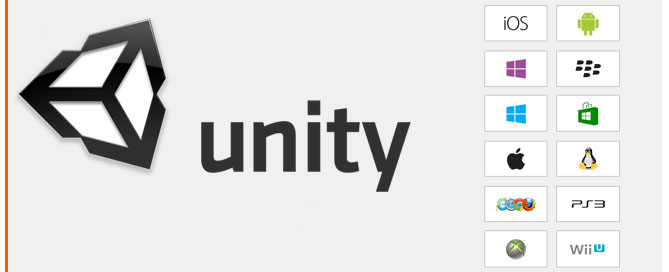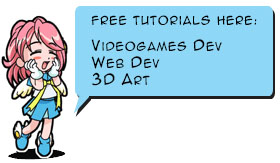delegate è la dichiarazione di un tipo delegato.
delegate è un tipo riferimento che può essere utilizzato per incapsulare un metodo.
In poche parole possiamo incapsulare o o più funzioni (multicast) all’interno di un songolo delegate.
Creare un Empty Object ed allegare lo script MulticastScript.cs
using UnityEngine;
using System.Collections;
public class MulticastScript : MonoBehaviour
{
delegate void MultiDelegate();
MultiDelegate myMultiDelegate; // creo la variabile contenitore
void Start()
{
myMultiDelegate += PowerUp; // aggiungo il metodo PowerUp()
myMultiDelegate += TurnRed; // aggiungo il metodo TurnRed()
if (myMultiDelegate != null) // controllo che non sia nullo
{
myMultiDelegate(); // stampa Power UP! Turn to RED
}
myMultiDelegate -= PowerUp; // tolgo il metodo PowerUp()
myMultiDelegate(); // Turn to RED
}
void PowerUp()
{
print("Power UP!");
}
void TurnRed()
{
print("Turn to RED");
}
}
Con delegate possiamo incapsulare una singola funzione con parametri.
Creare un Empty Object ed allegare lo script DelegateScript.cs
using UnityEngine;
using System.Collections;
public class DelegateScript : MonoBehaviour
{
delegate void MyDelegate(int num); // creo il delegato con una proprietà int
MyDelegate myDelegate; // notare che i nomi sono uguali
void Start()
{
myDelegate = PrintNum; // assegno al delegato la funzione PrintNum()
myDelegate(50); // invio a PrintNum(50)
myDelegate = DoubleNum;
myDelegate(50);
}
void PrintNum(int num)
{
print("Print Num: " + num);
}
void DoubleNum(int num)
{
print("Double Num: " + num * 2);
}
// print:
// 50
// 100
}



